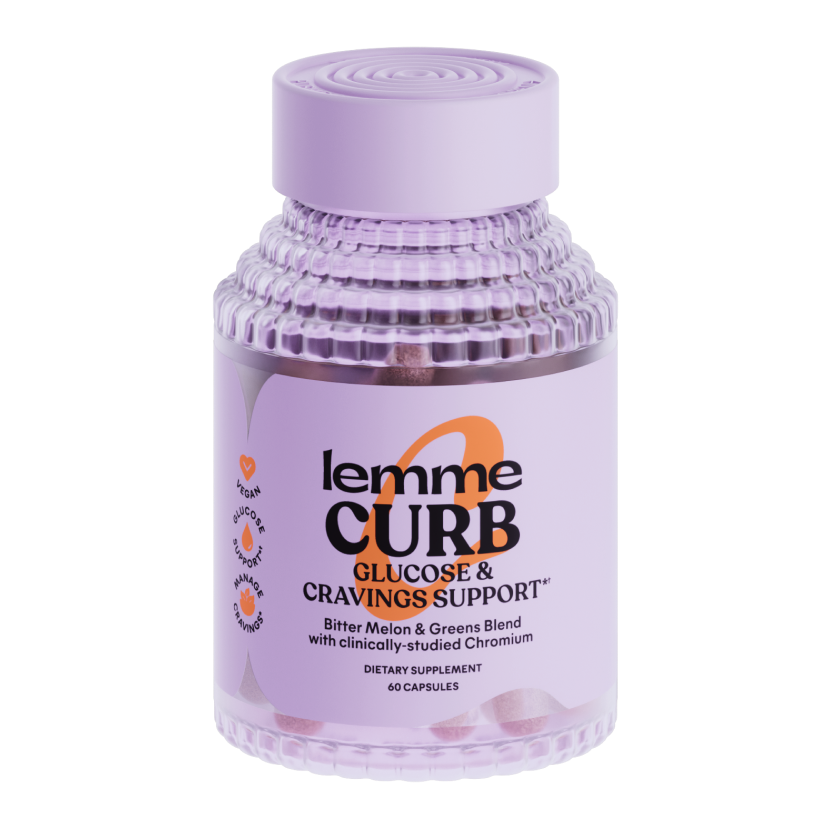
What Helps With Bloating? 6 Tips
Feeling bloated can be frustrating, especially if you find yourself dealing with it on a regular basis. From the impact on your confidence to the physical discomfort, bloating can interrupt your day and keep you from feeling your best.
Understanding why bloating happens can help you learn more about your body so you can adjust your habits and feel better faster. Let's go over some of the primary factors that can cause bloating and talk about how to reduce the feeling so that you can feel your best.
What Is Bloat?
Bloating is a gastrointestinal issue that typically occurs after eating, and you may find that certain foods tend to trigger this symptom more often than others. When you are bloated, you may feel uncomfortably full, and your stomach may feel tight and slightly painful. Usually, this is due to excess gas, and any discomfort generally goes away once the bloating eases up.
For some people, abdominal bloating only occurs occasionally and doesn't last long. However, for others, bloating can be a common occurrence.
What Causes Bloating In The Body?
Occasional bloating may not be something to worry about, but when it happens frequently, you may start to wonder why. If you experience bloating often, understanding the root cause may help you get to the bottom of how you feel so you can start making changes and feel back to your usual self.
The primary causes of bloating are food related. However, in some cases, bloating may also be influenced by hormones and stress.
Here are a few of the most common causes of abdominal bloat. If you notice you can relate to some of these causes, you may want to address your symptoms with a dietitian or healthcare professional.
Eating Too Fast
If you have a busy schedule, finding time to enjoy meals each day might be challenging. You may be tempted to eat as quickly as possible when you’re short on time, but that's not always the best idea.
Sometimes, eating too quickly can cause you to experience belly bloat and indigestion. You'll swallow more air when you eat too quickly, which can result in gas and bloating. Eating too quickly can also interfere with your body’s ability to properly digest your food, and may lead to symptoms of indigestion like heartburn.
One way to avoid symptoms like bloating when you’re in a rush is to take smaller bites, and to chew those bites more thoroughly. Both of these tips can help reduce the amount of air you are swallowing while also making your food more easily digestible.
You can also opt to eat smaller meals more frequently rather than one big meal at a time. Doing so can help your GI tract digest your food more efficiently, and you may experience less gas.
Certain Foods
Some foods are more likely to cause gas and bloating due to their nature. For example, carbohydrates that contain lactose and fructose can cause discomfort due to the way the body breaks down these molecules.
Additionally, foods containing FODMAPs (fermentable oligosaccharides, disaccharides, monosaccharides, and polyols) may cause excess bloating. Because of this, many people prioritize a low-FODMAP diet to take control of their nutrition and help keep bloating at bay.
Some high-FODMAP foods that you may want to watch out for include:
- Apples
- Peaches
- Watermelon
- Barley
- Xylitol
- Cauliflower
- Garlic
- Onion
- Wheat
- Dairy products like cream, cheese, and yogurt
- Sorbitol
- Lentils
It may be surprising to see so many foods on the high-FODMAP list that are supposed to be nutritious (like veggies). For many people, avoiding these foods and opting for low-FODMAP foods can help reduce bloating and gas. However, meeting with a dietitian or nutritionist can help you address your concerns when it comes to choosing a diet that reduces bloating.
Food Intolerance
If you struggle with a dietary intolerance, you'll know the result of eating something that isn't on your safe foods list. A food intolerance differs from a food allergy, where your immune system reacts after consuming a particular allergen.
Many typical food intolerances include an aversion to dairy products (lactose intolerance and casein intolerance), gluten, shellfish, corn, and soy. Food intolerances result in a bloated feeling, heartburn, or abdominal pain. If you suspect a food intolerance, consult your doctor to see if you can determine what the culprit might be.
Some remedies may help ease discomfort caused by the symptoms of a food intolerance, but the only real way to address an intolerance is to avoid the food that is causing it altogether.
What Helps With Bloating?
Now that we’ve talked about the causes of bloating, we have good news — there are a few ways to ease bloating so you can go about your day comfortably.
Keep reading to explore some quick remedies to ease bloating.
1. Do Some Low-Intensity Exercise
If you're feeling bloated or swollen after a meal, some gentle physical activity can help.
Your workout doesn't have to be strenuous, especially if your bloating is particularly uncomfortable. Although cardio may help your digestion progress, even low-intensity exercises can help you get some relief from bloating without having to push yourself too hard.
Here are a few forms of low-intensity exercise that may help you de-bloat:
- Going for a walk
- Practicing yoga or pilates
- Stretching
- Riding a bike
Not only can low-intensity exercise help reduce bloating, but it can also help support proper sleep, which in turn supports digestion.
2. Try Digestive Gummies
If you're struggling with bloating frequently, you might be wondering if there is anything you can do to ease your symptoms and feel more normal again. However, on some days, you may not have time to perform a gentle abdominal massage or complete your exercise routine.
If you're looking for support with digestion, taking a digestive gummy can help.
Lemme Debloat contains two clinically-studied probiotics and a prebiotic that:
- Reduce occasional bloating and ease bloat discomfort*
- Support digestion*
- Maintain a healthy gut*
- Support immune system health*
3. Consider Probiotics
Taking probiotic supplements may also promote relief when taken for bloating. Probiotics are live microorganisms that can help support the levels of good bacteria in your gut. Having the right balance of good bacteria is crucial for keeping harmful bacteria at bay and supporting proper digestion.
Probiotics can help establish a healthy microbiome that keeps digestion running properly. Taking a supplement containing probiotics, like Lemme Debloat, may help you ease bloating and aid your digestion.*
4. Drink More Water
In some cases, the feeling of a swollen stomach may be due to water retention or constipation, either of which can result from dehydration.
Making sure to drink plenty of water throughout the day can help support proper digestion and flush away water retention. Be mindful of your intake of alcoholic beverages, carbonated drinks, and sugary juices with artificial sweeteners, as these can contribute to feelings of dehydration or bloating later on.
5. Try A Gentle Massage
When you're not feeling your best because of gas or bloating, doing a gentle massage on your abdomen can help. A gentle massage can also help move your food along in your digestive tract to support proper digestion.
For a gentle abdominal massage, use three fingers flat against your stomach and apply gentle pressure in circles across your abdomen. Continue the massage for 2-3 minutes or until your discomfort eases up.
6. Relax With A Warm Bath
A warm bath can help soothe some of the discomfort associated with bloating and indigestion. Sometimes, bloating can even cause your abdominal muscles to feel sore, and a warm bath can help ease the tension.
The Bottom Line:
You don’t have to stay bloated, and feeling overly full and swollen doesn’t have to be a life-long struggle.
When you notice your abdomen feeling tighter and more full than usual, it’s probably a sign that it’s time to start changing things up. Whether you take Lemme Debloat gummies, opt for a warm bath, or exercise each day, there are many ways to find some relief from symptoms of bloating.
Sources:
Bloating: Causes and Prevention Tips | Johns Hopkins Medicine










